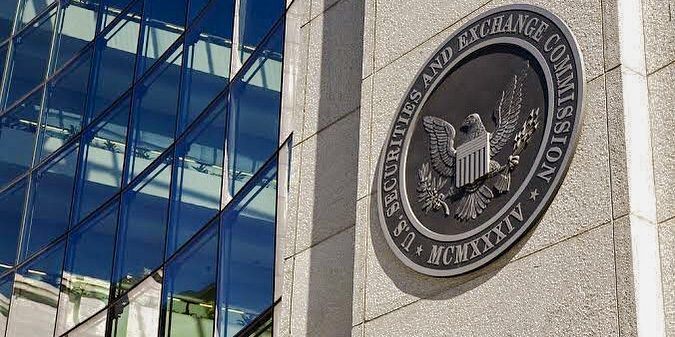View by Topic
Recent Articles
-
Congress Blocks California’s Gasoline Car BanSaturday, May 31st, 2025
-
EPA Will Keep Current Limits for “Forever Chemicals” in Drinking WaterSaturday, May 24th, 2025
-
Court Indefinitely Pauses SEC Climate Rule LitigationSaturday, May 17th, 2025
-
Maryland is About to Regulate Mold But is the Cart Before the HorseSaturday, May 10th, 2025
View by Month/Year
“Green Building Law Update” Headlines
Recent Articles & News from
Stuart Kaplow’s blog
at GreenBuildingLawUpdate.com
- Congress Blocks California’s Gasoline Car Ban: A Legal and Policy Analysis June 1, 2025
- EPA Will Keep Current Limits for “Forever Chemicals” in Drinking Water May 25, 2025
- Court Indefinitely Pauses SEC Climate Rule Litigation May 18, 2025
- Maryland is About to Regulate Mold: But is the Cart Before the Horse? May 11, 2025
Subscribe to the Green Building Law Update!
Stuart Kaplow brings his expertise and extensive experience to the table with his unique digital publication, "Green Building Law Update". Subscribers receive regular updates to keep them informed about important issues surrounding Environmental Law, Green Building & Real Estate Law, as well as the emerging demand for Environmental Social Governance (ESG).
Get fresh content through the lense of Stuart Kaplow's cutting-edge expertise, innovative commentary and insider perspective. Don't miss another issue! Subscribe below.

SEC Final Rule on Climate Change and GHG Disclosure
After this article was posted, on Friday, March 15, 2024, the 5th Circuit Court of Appeals issued an Order granting an Emergency Motion for Administrative Stay and Stay Pending Judicial Review filed by Liberty Energy and Nomad Proppant Services, in one of the nine cases challenging the March 6 SEC Final Rule on Climate Change and GHG Disclosure (in advance of that Final Rule even being printed in the Federal Register), which unpublished two page Order did not explain the reasoning for granting the stay. But, ..
Then on March 21, 2024, the nine lawsuits pending in six federal circuits were after a random lottery, by a Consolidation Order of the Judicial Panel on Multidistrict Litigation, into a single case to be heard in the 8th Circuit Court of Appeals.
And on Friday, March 22, 2024, the 5th Circuit Court of Appeals’ unpublished Order that transferred the litigation to the 8th Circuit dissolved its prior issued stay having the effect of restoring the SEC Final Rule. We will follow the litigation here.
Last Wednesday by a 3 to 2 vote the Securities and Exchange Commission adopted long awaited rules to enhance and standardize climate related disclosures, including for the first time requiring greenhouse gas emission disclosures by public companies and in public offerings.
The Enhancement and Standardization of Climate-Related Disclosures for Investors Final Rule is different from the proposal released two years ago and it is more than that the proposed rule was 510 pages in length and this Final Rule is 886 pages. With the benefit of having watched the more than 2 hour live streamed SEC public meeting where the vote took place, this blog post will highlight our initial impressions of this consequential rulemaking from those 886 pages in several hundred words.
Widely reported in the media, the Final Rule eliminates the originally proposed Scope 3 GHG emission reporting (.. the devilishly difficult attempt to estimate from activities not owned or controlled by the company).
To not bury the lede, the Final Rule expressly and approvingly allows the use of carbon offsets and renewable energy certificates (RECs) requiring disclosure when they are a component of a business’ plan to achieve its disclosed climate related targets or goals. Make no mistake, this is huge.
But the changes do not alter the rule’s fundamental purpose (.. and flaw as many see it) that climate disclosures require heightened treatment and express space in SEC disclosures without authority from Congress. This Final Rule will be expensive for public companies and their shareholders and will expose companies to a myriad of previously unknown risks.
Of course, the existing SEC disclosure regime already requires companies to inform investors about material risks and trends, including those related to climate (.. 36% of annual Commission filings include climate disclosures). The Commission’s 2010 climate guidance explains how climate related issues, particularly a company’s financial condition, require annual analysis and possible disclosure. We have done a great deal of that work for public companies, their securities counsel, and their consultants and that work will grow exponentially under this new Final Rule as materiality appears now replaced by pages of prescriptive disclosures.
Specifically, the Final Rules will require most SEC registered companies to disclose:
- Climate related risks that have had or are reasonably likely to have a material impact on the business’ business strategy, results of operations, or financial condition;
- The actual and potential material impacts of any identified climate related risks on the business strategy, business model, and outlook;
- If, as part of its strategy, a company has undertaken activities to mitigate or adapt to a material climate related risk, a quantitative and qualitative description of material expenditures incurred and material impacts on financial estimates and assumptions that directly result from such mitigation or adaptation activities;
- Specified disclosures regarding a business’ activities, if any, to mitigate or adapt to a material climate related risk including the use, if any, of transition plans, scenario analysis, or internal carbon prices (leaving uncertain how to address in that transition plan that the outcome of an election would significantly alter the risk?);
- Any oversight by the board of directors of climate related risks and any role by management in assessing and managing the business’ material climate related risks;
- Any processes the registrant has for identifying, assessing, and managing material climate related risks and, if the company is managing those risks, whether and how any such processes are integrated into the business’ overall risk management system or processes;
- Information about a business’ climate related targets or goals (e.g., we will be carbon neutral by 2040), if any, that have materially affected or are reasonably likely to materially affect the business’ business, results of operations, or financial condition;
- For large accelerated filers and accelerated filers that are not otherwise exempted, information about material Scope 1 GHG emissions and/or Scope 2 emissions;
- For those required to disclose Scope 1 and/or Scope 2 GHG emissions, an assurance report at the “limited assurance” level, which, for a large accelerated filer, following an additional transition period, will be at the higher “reasonable assurance” level (.. which higher level we arguably already achieve for clients today);
- The capitalized costs, expenditures expensed, charges, and losses incurred as a result of severe weather events and other “natural conditions” (.. SEC Commissioner Peirce pointed out that was a crazy broad term that might have included Covid or the next pandemic), .. subject to applicable one percent and de minimis disclosure thresholds, disclosed in a note to the financial statements;
- The capitalized costs, expenditures expensed, and losses related to carbon offsets and renewable energy certificates (RECs) if used as a material component of a business’ plans to achieve its disclosed climate related targets or goals, disclosed in a note to the financial statements; and
- If the estimates and assumptions a registrant uses to produce the financial statements were materially impacted by risks and uncertainties associated with severe weather events and other natural conditions or any disclosed climate related targets or transition plans, a qualitative description of how the development of such estimates and assumptions was impacted, disclosed in a note to the financial statements.
The Final Rule, in another change from that proposed, permits a business to hire non auditor assurance providers, which will allow other than just the Big 4 and other large accounting firms to report on climate change and calculate GHG emissions. For more than 10 years we have been advising companies, their securities counsel, and their consultants about SEC climate change disclosures, and for nearly 20 years we have counseled clients about GHG emissions, so we believe we are uniquely qualified to do that work under this new regulatory regime.
All of that observed much of this Final Rule will Not apply to the more than 50,000 Department of Defense contractors that Congress just provided by statute, on December 23, 2023, who are not permitted to “disclose a greenhouse gas inventory or any other report on greenhouse gas emissions,” being a significant number of the approximately 12,000 companies registered with the SEC.
Among the significant unresolved issues is given that the SEC has by this Final Rule taken the position that the federal agency has broad authority to mandate climate disclosures, does this preempt California’s recently passed disclosure law (that is being challenged in court by businesses) which applies to an untold number of companies across the country and the globe that do business in California, already serving as a national standard? And how does this mesh with the EU ESG disclosure obligations for multinationals effective since January 1, 2024?
Before adopting the final rules, the Commission considered more than 24,000 comment letters, including more than 4,500 unique letters, submitted in response to the rules’ proposing release issued in March 2022.
The Final Rule will become effective 60 days following publication in the Federal Register and compliance dates will be phased in dependent on the business’ filer status, however, ..
In future articles, we will write about the legal challenges to the Final Rule, including the case already filed by ten states in federal court in the 11th Circuit where West Virginia is the lead plaintiff (.. déjà vu West Virginia v. EPA, where the Supreme Court solidified its major questions jurisprudence and significantly curbed the EPA’s power to regulate GHG emissions without clear authority from Congress). And we expect environmental groups that have been heard to threaten court challenges because the rules do not go far enough, will commence actions, we will write about that also.
We will also write a detailed analysis of key requirements of the Final Rule, including methodologies for GHG emission calculation (e.g., that are inconsistent with Maryland’s proposed GHG regulations).
Even with the uncertainty arising from already commenced judicial challenges, it is of critical import that the thousands of SEC reporting companies (.. and their landlords, utilities, and others) promptly create the internal processes and commence collection of data for fiscal year 2025 disclosures and financial statements required by the Final Rule.
____________________
Join us for our most important webinar “Remove Slavery From Your Supply Chain” 30 talking points in 30 minutes, Tuesday, March 19 at 9 am EDT presented by Stuart Kaplow on behalf of ESG Legal Solutions, LLC. The webinar is complimentary, but you must register here.









